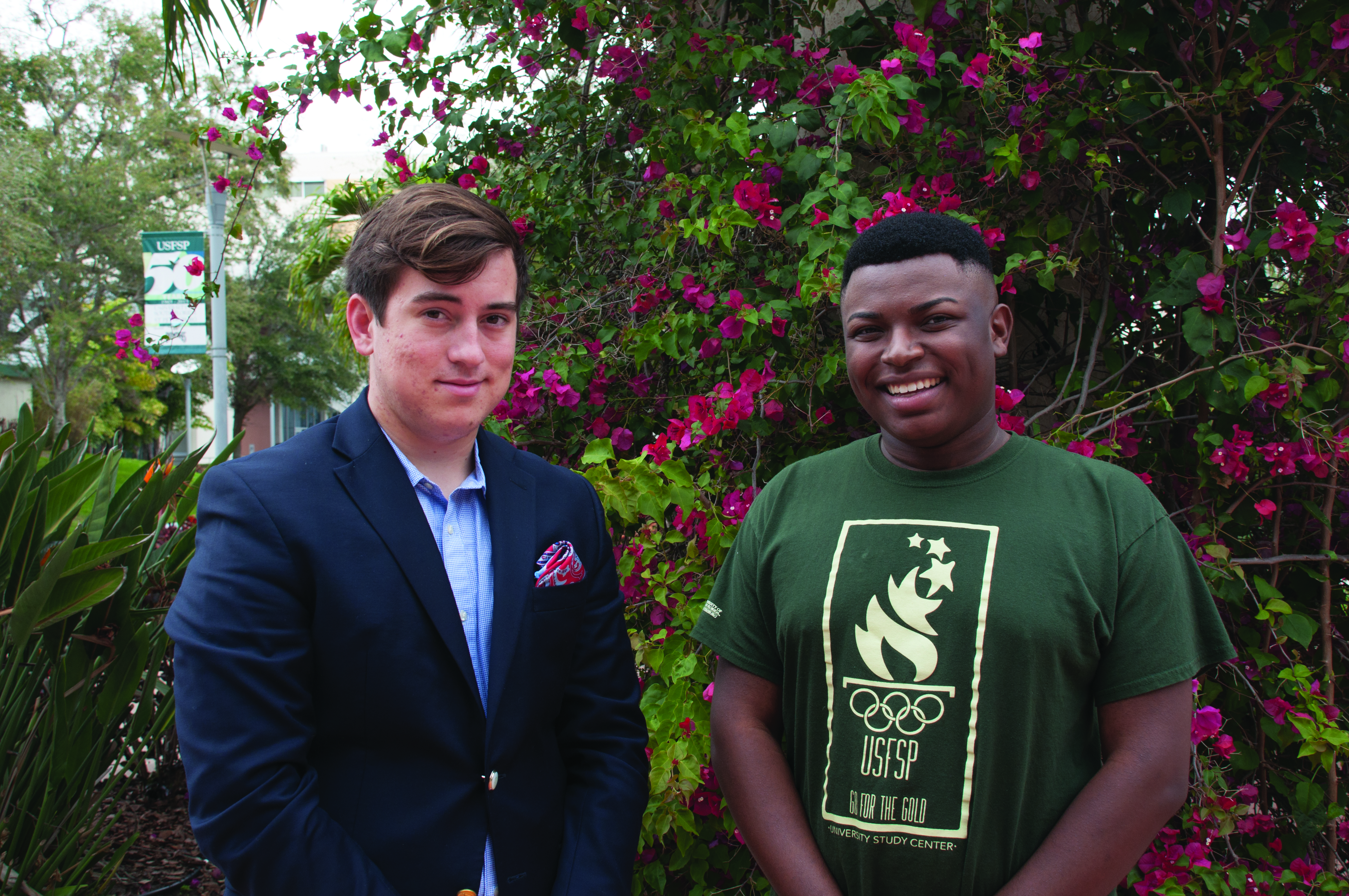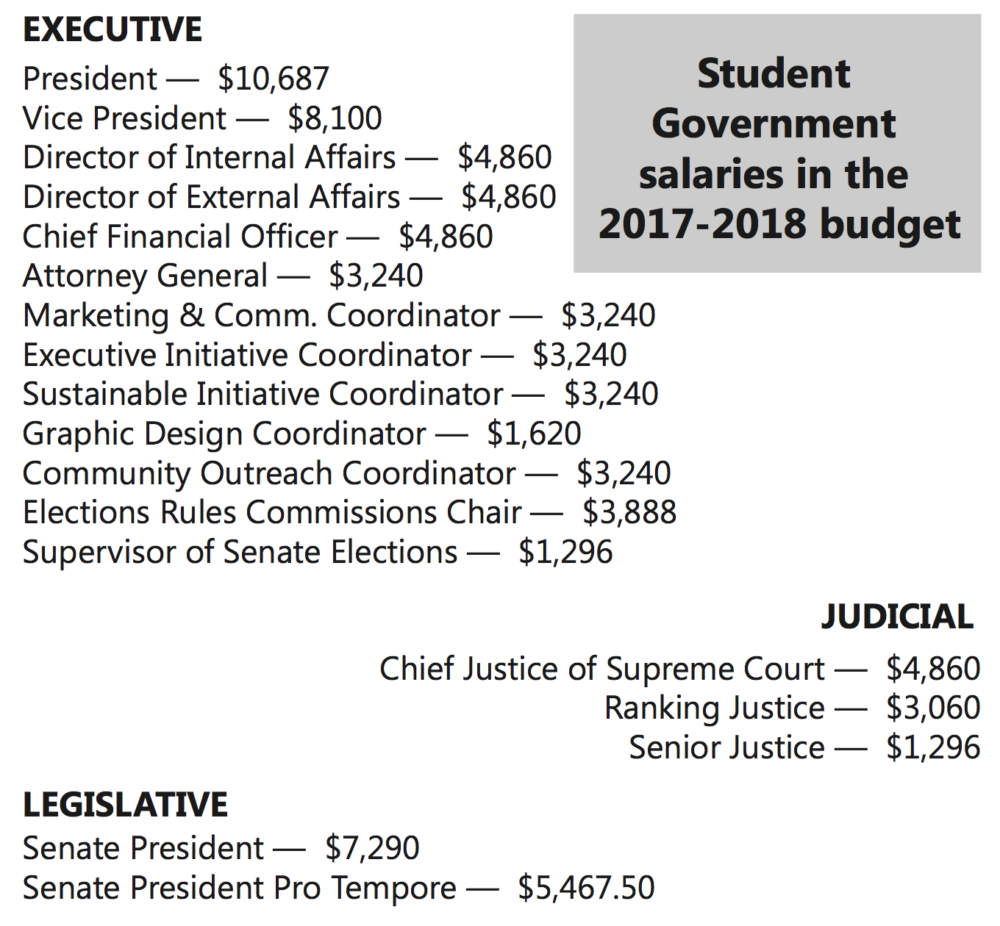Eighteen students who hold positions in Student Government stand to receive a total of $78,344 in salaries in 2017-2018 under a final budget approved April 3 by the student senate.
Thirteen of the 18 are in the executive branch, including incoming SG President David Thompson, who is budgeted to receive $10,687, and incoming Vice President Samuel Goetz, $8,100.

[DEVIN RODRIGUEZ | THE CROW’S NEST]
Three members of SG’s judicial branch receive salaries. The chief justice (now Kayla Hall) will make $4,860; the ranking justice (now Richard Marini), $3,060, and the senior justice (now Julio Jimenez), $1,296. The other four justices do not receive salaries.
Altogether, SG will receive $190,145 in 2017-2018. The salaries are unchanged from this year – with one exception. At Thompson’s request, the senate approved one additional position, a community outreach coordinator, for $3,240.
The new coordinator “will be responsible for creating flyers and marketing materials for SG, clubs and organizations” and corresponding weekly with The Crow’s Nest and university officials, Thompson said.
Under the final SG budget, The Crow’s Nest will get $3,000 more than it was slated to receive under senators’ initial plan. But it will still receive $4,507 less than it received this year. 
Twelve students who hold positions at the newspaper stand to receive salaries totaling $28,378. In the 2017-2018 budget, the editor-in-chief (now Devin Rodriguez) will receive $5,950 – down $2,550 from this year – and the managing editor (now Ryan Callihan) will receive $2,835 – down $1,995.
The budget comes from the $3.3 million that USF St. Petersburg students are expected to pay in activities and service fees during the 2017-2018 school year. Each student pays an A&S fee of $25.63 per credit hour – or $307.56 for a full-time student in a semester of 12 credit hours.
Slightly more than half of the $3.3 million goes to help fund the University Student Center. The remainder is allocated by Student Government.
The budget approved by SG on April 3 has since been approved by SG President Laraine Ruiz and submitted to Dwayne Isaacs, director of student life and engagement. After he signs off on the budget, it will go to Sophia Wisniewska, the regional chancellor of the university, for final approval.
Although she approved the proposed budget, Ruiz said she was somewhat uncomfortable with the way student senators handled it. They should have made more cuts, she said.
Some senators “have a hard time sticking to what they believe in and don’t say ‘no’ when they should” because they have friends in organizations seeking SG money, she said.
“We’re supposed to represent the student body, not just the members of Student Life (organizations), and I don’t think we take into account how the general student body would feel if they knew the sorts of things our money gets allocated towards.”
Some students are surprised to learn how money is spent, Ruiz said.
“They’re all, like, wait – our money goes to that? Or, wait, you get paid to be (SG) president?”


